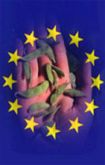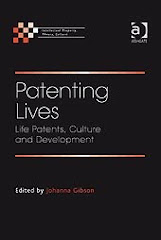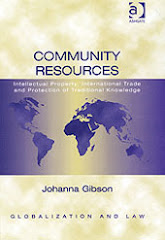 n citizens have been characteristically reluctant about the entry of GM food into European agricultural markets. Previous posts have looked at efforts to achieve adequate co-existence regulations ahead of admitting GM food into Europe. However, many have continued to reject the possibility of genuine co-existence of organic, traditional, and GM agriculture in Europe, particularly given the very specific nature of European agricultural practices, where many farms are just a few hectares in size. Despite the efforts towards co-existence on the one hand, complaints of a de facto moratorium on approvals of biotech products in Europe have been brought to the World Trade Organization (WTO) by the United
n citizens have been characteristically reluctant about the entry of GM food into European agricultural markets. Previous posts have looked at efforts to achieve adequate co-existence regulations ahead of admitting GM food into Europe. However, many have continued to reject the possibility of genuine co-existence of organic, traditional, and GM agriculture in Europe, particularly given the very specific nature of European agricultural practices, where many farms are just a few hectares in size. Despite the efforts towards co-existence on the one hand, complaints of a de facto moratorium on approvals of biotech products in Europe have been brought to the World Trade Organization (WTO) by the United States, Canada and Argentina. The final report of the Dispute Settlement Panel is expected sometime in September this year.
States, Canada and Argentina. The final report of the Dispute Settlement Panel is expected sometime in September this year.However, this week, a report on the most recent "Eurobarometer" on public attitudes to biotechnology suggests a shift. Prepared for the European Commission's Research Directorate-General (DG Research), the report is based on a survey of 25 000 respondents, undertaken in 2005.
The report concludes that just over half of European citizens are optimistic about biotechnology. Nevertheless, the concerns about GM food remain, with most of those surveyed stating that GM food should not be encouraged. The summary of key findings notes that "resistance to GM food is the exception rather than the rule."
Notably, the increased optimism in biotechnology more widely is largely influenced by a growing confidence in the EU regulation of the technologies. However, the ongoing resistance to GM food suggests that this confidence in regulatory frameworks does not extend to confidence in this area: "The introduction of the new regulations on the commercialisation of GM crops and the labelling of GM food (2001/18/EC) appears to have done little to allay the European public's anxieties about agri-food biotechnology."
Arguably,
 the very specific nature of agricultural practices, including the important diversity of European agricultural communities and the cultural importance of food, suggests that efforts at co-existence do not seem to be generating confidence in European consumers. Importantly, that lack of confidence is not a sense of alienation from the technology, nor can it be dismissed as merely resistance to the technology and science as such. Indeed, this is borne out by the survey's results in other areas, there being "no evidence that opposition to GM food is a manifestation of a wider disenchantment with science and technology in general."
the very specific nature of agricultural practices, including the important diversity of European agricultural communities and the cultural importance of food, suggests that efforts at co-existence do not seem to be generating confidence in European consumers. Importantly, that lack of confidence is not a sense of alienation from the technology, nor can it be dismissed as merely resistance to the technology and science as such. Indeed, this is borne out by the survey's results in other areas, there being "no evidence that opposition to GM food is a manifestation of a wider disenchantment with science and technology in general."Rather, public attitudes to GM food in Europe embody very particular issues and concerns specific to farming and food cultures in Europe.



No comments:
Post a Comment